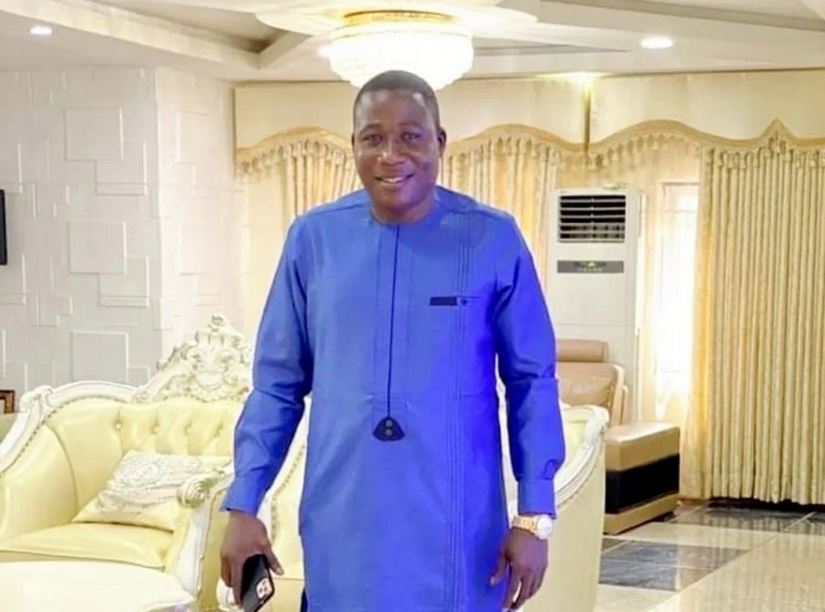The Yoruba Nation Movement: A Call for Independence
In recent developments, Sunday Adeyemo, popularly known as Igboho, has taken a significant step in the quest for a Yoruba nation by submitting a petition to the Prime Minister of the United Kingdom, Keir Starmer. This petition, presented on behalf of Prof. Adebanji Akintoye, the leader of the Yoruba Nation movement, seeks international support for the establishment of a country predominantly owned by the indigenous Yoruba people. This article delves into the background of the movement, the motivations behind the petition, and the broader implications of this call for independence.
Background of the Yoruba Nation Movement
The Yoruba Nation movement has gained momentum over the past few years, fueled by a growing sense of discontent among the Yoruba people regarding their treatment within Nigeria. Advocates argue that the Yoruba people, one of the largest ethnic groups in Nigeria, deserve a sovereign state where they can exercise self-determination and preserve their cultural heritage. The movement has been marked by protests, rallies, and calls for autonomy, reflecting a deep-seated desire for political and economic independence.
Igboho’s Role in the Movement
Sunday Igboho has emerged as a prominent figure in the Yoruba Nation movement, known for his passionate advocacy and unwavering commitment to the cause. His recent petition to the UK Prime Minister signifies a strategic move to garner international attention and support for the Yoruba people’s aspirations. By reaching out to a foreign government, Igboho aims to highlight the plight of the Yoruba people and seek intervention in their quest for self-governance.
The Petition to the UK Prime Minister
On a notable Monday, Igboho’s spokesman, Olayomi Koiki, announced via social media that the petition had been delivered to 10 Downing Street. The petition outlines the grievances of the Yoruba people and calls for the UK government to consider their quest for a separate nation. This move is particularly significant given the historical ties between the UK and Nigeria, as well as the UK’s role in international diplomacy.
The petition is not merely a symbolic gesture; it represents a calculated effort to engage with global powers that can influence the Nigerian government. By appealing to the UK Prime Minister, the Yoruba Nation movement seeks to elevate its cause on the international stage, potentially attracting support from other nations and human rights organizations.
Allegations Against the Nigerian Government
The Yoruba Nation movement has faced significant challenges, including allegations of intimidation and coercion from the Nigerian government. Prof. Akintoye has publicly accused the government of attempting to undermine Igboho’s resolve by offering him financial incentives to abandon the struggle for a Yoruba nation. According to Akintoye, a former Chief of Army Staff, Lt. Gen. Tukur Buratai (retd.), allegedly approached Igboho in prison with a promise of billions of naira in exchange for his renunciation of the movement.
This incident underscores the lengths to which the Nigerian government may go to suppress dissent and maintain the status quo. Igboho’s refusal to sign the document presented by Buratai is a testament to his commitment to the cause, further solidifying his status as a symbol of resistance among the Yoruba people.
The Broader Implications of the Movement
The Yoruba Nation movement is not an isolated phenomenon; it reflects a broader trend of ethnic nationalism and calls for self-determination across Nigeria and other parts of Africa. As various ethnic groups seek to assert their identities and rights, the potential for conflict and fragmentation within Nigeria increases. The international community’s response to movements like that of the Yoruba Nation could play a crucial role in shaping the future of Nigeria and its diverse populations.
Conclusion
The submission of the petition to the UK Prime Minister by Sunday Igboho marks a pivotal moment in the Yoruba Nation movement. It highlights the ongoing struggle for self-determination and the desire for a sovereign state among the Yoruba people. As the movement gains traction, it raises important questions about governance, identity, and the rights of ethnic groups in Nigeria. The outcome of this petition and the international response it elicits could have far-reaching implications for the future of the Yoruba people and the nation as a whole. The world watches closely as this narrative unfolds, with the potential for both hope and conflict on the horizon.
